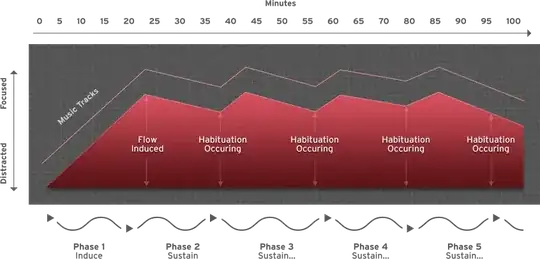The most famous study is talking about so called "The Mozart effect".
In 1993 Rauscher et al. made the surprising claim that, after
listening to Mozart's sonata for two pianos (K448) for 10 minutes,
normal subjects showed significantly better spatial reasoning skills
than after periods of listening to relaxation instructions designed to
lower blood pressure or silence. The mean spatial IQ scores were 8 and
9 points higher after listening to the music than in the other two
conditions.
[...]
An enhancement of spatial-temporal reasoning performance after listening to Mozart's music for 10 minutes has been reported by several, but not all, researchers. Even in the studies with positive results the enhancement is small and lasts about 12 minutes. The effect varies between individuals and depends upon the spatial tasks chosen; general intelligence is not affected.
Note, that this study has been somewhat controversial, as many researches failed to reproduce any results.
There are also studies, that give quite the opposite result:
Music may impair cognitive abilities in these scenarios because if
you're trying to memorize things in order, you may get thrown off by
the changing words and notes in your chosen song, the authors
speculate.
And another one:
McCraty, R., Barrios-Choplin, B., Atkinson, M., & Tomasino, D. (1998). The effects of different types of music on mood, tension, and mental clarity. Alternative therapies in health and medicine, 4(1), 75-84.
They tested four genres of music from
various corners of the music world; Grunge Rock, New Age, Classical,
and Designer. The results were conclusive in revealing that grunge
rock evoked hostility and greatly reduced mental clarity and
motivation. We found this particularly important to our studies as we
also plan to test primarily college students who commonly listen to
grunge music.
What I've read (can't quite find the reference now), is that music with lyrics decreases you concentration because your brain will involuntarily interpret what the song is saying. Obviously, classical music, like Mozart, is purely instrumental.
